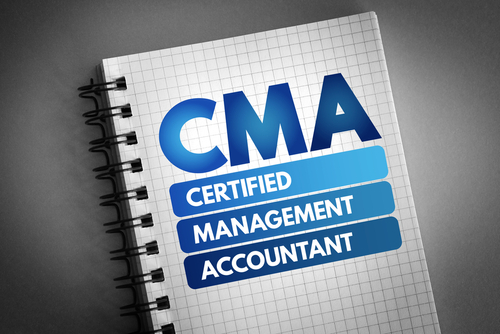In this guide, we’ll make everything about the CMA clear and easy to understand—what it is, how much it costs, what steps you need to take to get certified, and most importantly, what kinds of jobs and career opportunities it can open up for you.
CMAs are the planners, the advisors, and the quiet but powerful minds who help guide the future of an organization. While other accountants focus on reporting the past, CMAs focus on shaping what comes next. They provide the kind of detailed, data-driven insights that help company leaders—CEOs, CFOs, and department heads—make smart, strategic decisions about growth, budgeting, and investments.
In a way, CMAs are like financial storytellers, helping companies read the numbers and figure out what their next chapter should be.
Companies know this. Businesses across every industry—whether it’s tech, healthcare, manufacturing, or finance—value CMAs. Why? Because the ability to turn financial data into smart business moves is priceless in today’s fast-changing world.
But—and this is important—the CMA isn’t for everyone. It’s a challenging path that requires real commitment. And that’s why it’s worth asking: Is a CMA certification worth it for you?
What Is a CMA Certification?
CMA stands for Certified Management Accountant.
Earning a CMA means you’ve mastered the rare blend of financial expertise and strategic thinking that companies around the world deeply value. It’s a mark of excellence given to finance professionals who’ve checked off some important boxes:
- Completing the required education
- Gaining hands-on work experience
- Passing two tough exams (Part 1 and Part 2)
- Committing to the high ethical standards set by the Institute of Management Accountants (IMA).
But what makes CMAs special is how they use their skills. These are the people companies trust to see the bigger picture—to turn raw numbers into smart insights and strategies.
It’s a versatile credential that opens doors across various industries, including tech, healthcare, manufacturing, banking, and more. You’ll often find CMAs in leadership or high-responsibility roles, such as:
- Financial Analyst
- Cost Accountant
- Corporate Controller
- Finance Manager
- CFO (Chief Financial Officer)
- Risk Manager
- Internal Auditor
Their daily work touches on things like:
- Performance management
- Cost management
- Risk management
- Financial analysis
- Decision-making
Related Articles:
- Are Accounting Certifications Worth It?
- Are Certified Public Accountant (CPA) Certifications Worth It?
- Is an Accounting Degree Worth It?
- Are Chartered Financial Analyst (CFA) Certifications Worth It?
What Are the Benefits of a CMA Certification?
So, is a CMA certification worth it?
Let’s start exploring the real benefits that make the CMA such a valuable credential.
CMA Salary Potential
According to the 2023 IMA Global Salary Survey, CMAs earn about 21% more in total compensation worldwide compared to non-CMAs. In the Americas, the gap is even bigger—CMAs make 20% more in median salary and 24% more in total pay.
CMAs in the Americas earn a median salary of $137,137 and total compensation of $163,932—the highest of all regions. Globally, CMAs take home nearly $15,000 more in total compensation than their non-CMA peers.
Career Advancement
If you want to rise through the corporate ladder, the CMA gives you a competitive edge. Employers see the CMA as proof that you’ve got advanced skills in management accounting and financial strategy.
Job Security
A CMA shows you’re serious about your profession, which helps in tough job markets. Companies are less likely to let go of certified professionals when things get rough.
Global Recognition
The CMA is recognized worldwide—unlike some certifications that only matter in one country. You could land a job in the U.S., the Middle East, Asia, or Europe with this credential.
Improved Skill Set
Even the process of studying for the CMA makes you sharper. You’ll master budgeting, forecasting, cost management, internal controls, and decision analysis. These are skills that every business needs.
The Certified Management Accountant benefits go beyond promotions and pay raises. The CMA isn’t easy to earn. When you pass those tough exams and meet the high standards of the IMA, you know you’ve leveled up—and so do employers, coworkers, and clients.
How Much Does a CMA Certification Cost?
Becoming a Certified Management Accountant (CMA) is an investment, not just in time but also in your wallet. Let’s break down the CMA certification cost from start to finish.
Education Costs (Before the CMA Process)
First things first: you’ll need at least a bachelor’s degree in any field to be eligible for the CMA designation. Most candidates have degrees in accounting, finance, or business.
The cost of this education depends entirely on where you study, but generally:
- A Bachelor’s Degree can cost anywhere from $20,000 to $60,000 or more.
- A Master’s Degree (optional) can add another $20,000 to $50,000+.
Remember, you don’t need a master’s to pursue the CMA.
IMA Membership Fee (Required)
To even start the CMA journey, you need to become a member of the Institute of Management Accountants (IMA). This is mandatory.
- Students and Academic Members pay $45 to $150 per year, depending on status.
- Professional Members pay $295 per year.
This membership is required separately from all CMA exam fees.
CMA Entrance Fee
After becoming an IMA member, you’ll pay the CMA entrance fee to join the CMA program officially:
- Professionals: $300 (non-refundable)
- Students or Academic Members: $225 (non-refundable)
This fee cannot be refunded, no matter what.
CMA Exam Fees
The CMA exam has two parts, and you’ll pay for each one separately:
- Professionals: $495 per part
- Students or Academic Members: $370 per part
That means your total CMA exam fee will be either $990 (for professionals) or $740 (for students/academics), if you complete both parts as expected.
CMA Exam Rescheduling and Cancellation Fees
Need to reschedule or cancel your exam appointment? Here’s how it works:
- If you reschedule or cancel within 30 days of your exam date, you’ll need to pay a rescheduling fee to Prometric (the official testing provider).
- You must cancel at least 72 hours (3 days) before the exam date—otherwise, you might lose the full exam fee.
- You can’t move your appointment to another testing window. You must sit for the part you registered for, within that specific testing period.
CMA Exam Refund Policy
Changed your mind about becoming a CMA?
- The CMA entrance fee is not refundable, no exceptions.
- If you haven’t scheduled your Prometric exam appointment yet, you can get a refund for the exam fee—but only if it’s within 30 days of purchase. They’ll deduct a $25 processing fee from your refund.
- There are no postponements for exam parts. You have to take your exam within the testing window you registered for.
CMA Review Course (Optional but Highly Recommended)
You’ll most likely want to buy a CMA review course unless you want to try passing on raw talent (not advised—the exam is hard).
- Review courses typically cost between $700 and $2,500 or more, depending on the provider and package.
- Popular companies include Gleim, Wiley, Hock, and Surgent.
- Some employers cover these costs or offer discounts, so check with yours first.
Certification Maintenance and Continuing Education Costs
Once you’ve earned your CMA, you’re not done spending just yet.
- You’ll need to maintain your IMA membership every year—that’s $45 for students, $150 for academics, or $295 for professionals annually.
- You also need to complete 30 hours of Continuing Professional Education (CPE) annually, including 2 hours focused on ethics.
- CPE can range in cost from $0 (free webinars) to $1,000+ per year, depending on where and how you complete your credits.
Total Estimated Cost to Become a CMA
Let’s summarize the big expenses:
- Education: $20,000 – $60,000+ (for your degree)
- IMA Membership Fee: $45 – $295 annually
- CMA Entrance Fee: $225 – $300 (non-refundable)
- CMA Exam Fee (both parts): $740 – $990
- Rescheduling Fees (if needed): Depends on Prometric policy
- Review Course (optional but smart): $700 – $2,500+
- Certification Maintenance: $45 – $295 annually
- CPE (Continuing Education): $0 – $1,000+ per year
CMA vs CPA: Which One Should You Choose?
So, how does the CMA stack up against the CPA (Certified Public Accountant)?
Here’s a straightforward comparison of CMA vs CPA certification.
CPA:
- Focuses on auditing, taxation, and public accounting
- Required if you want to sign off on financial statements in the U.S
- Better for those aiming to work in public accounting or audit firms
CMA:
- Focuses on corporate financial management and strategy
- Great for those who want to work in business, industry, or even become a CFO
- Globally recognized
Which One Should You Choose?
- If you want to work in public accounting or tax, go for the CPA.
- If you want to work inside companies doing financial planning, analysis, and decision-making, the CMA might be a better fit.
- Some professionals get both, but it’s a lot of work (and money!).
Are There Affordable CMA Prep Options?
We’ve already seen that the journey of how to become a Certified Management Accountant isn’t cheap. So it only makes sense—and is actually a smart way to boost your return on investment (ROI)—to look for affordable CMA prep programs.
- IMA Student Scholarships: Check with your school or directly with IMA. They give away lots of free exam scholarships every year.
- Discounted Online Courses: Affordable CMA programs can be found on sites like Gleim and HOCK International, offering student discounts. Some platforms like Udemy have affordable crash courses, too.
- Free Resources: The IMA website has some free practice questions and materials. Reddit forums and LinkedIn groups can also be surprisingly helpful!
- Payment Plans: Most big providers of online CMA courses let you pay in monthly installments instead of all at once.
- Second-Hand Materials: Some people sell lightly used review books and flashcards online for cheap.
Who Should Consider Getting a CMA Certification?
The CMA isn’t for everyone, but if you meet these CMA certification requirements, it could be perfect for you:
- Business or Finance Majors: If you’re still in school and thinking about management accounting, this is a great credential to aim for.
- Early-Career Accountants: If you’ve got 2–3 years of work experience and want to climb the ladder, the CMA can boost your resume.
- Mid-Career Professionals: If you’re stuck in a role and want to break into management or executive positions, the CMA could be your ticket up.
- International Accountants: The global recognition makes this credential ideal for people who want to work abroad.
- Aspiring CFOs: If your dream is to be a Chief Financial Officer someday, the CMA will teach you the skills you’ll need.
Bottom Line: Is the CMA Certification Worth It?
So, is a CMA certification worth it? So, is a CMA certification worth it? Will the effort, stress, and money you invest actually pay off in the long run?
For many people working in accounting, finance, or business, the CMA is definitely worth it. But it really depends on your personal career goals. Before you decide, make sure to weigh the pros and cons carefully.
Pros:
- Higher salary potential.
- More career opportunities.
- Global job market access.
- Skill development that goes beyond basic accounting.
Cons:
- Costly, especially if your employer doesn’t cover the fees.
- Requires serious time commitment (you’ll need to study 150–200 hours per exam part).
- Not useful if your dream is to become an auditor or tax specialist (get the CPA instead).
Who Will Get the Most Value?
- If you want to work in corporate finance, budgeting, decision support, or move toward a CFO role, the CMA is worth it.
- If you prefer public accounting or tax law, the CPA is the better choice.
Just remember: it’s not a “quick win” certification. It demands serious study, focus, and money upfront. But if you put in the effort, the CMA can open doors that might have stayed shut otherwise.
Take your time deciding. Talk to people in the field. Think about where you want to be in five or ten years. And if management accounting excites you, the CMA might just be the ticket to the career you want.




